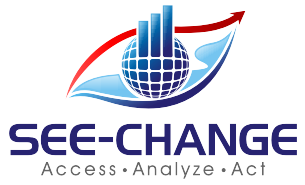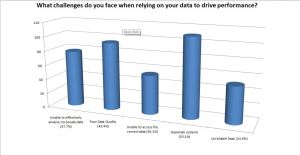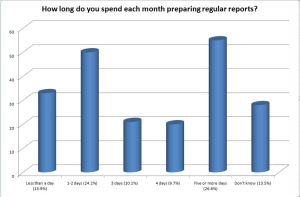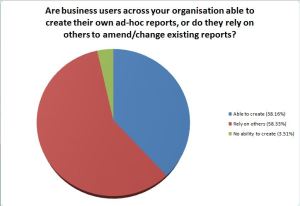A/NZ Business Intelligence Survey
Recently, I attended the announcement of the Longhaus Pulse Research on BI and Analytics for 2011. Longhaus Pulse is the most comprehensive and regionally focused assessment of the Business Intelligence and Analytics market in Australia.
One area I found interesting was Longhaus Managing Director Peter Carr‘s observations around the evolution of the Business Intelligence market. Having worked in the BI industry for almost 20 years, this is something I can definitely relate to. Peter compared the current exciting trends around “Next Generation BI” to the prevalent trends of the 1980’s, 1990’s and 2000’s. Right now, Peter observed, trends around “Cloud” and Social Media are “putting the power back into the hands of the knowledge workers”. It’s certainly interesting that the “Next Generation BI” trends are all around Data Visualization, End User Self-Service, and Mobility (Mobile access to information). In other words, empowering the business user. (Funny, I thought we already had that in the 90’s…). Unfortunately, the 2000s became about “BI Standardization”, Portals and the like which were all heavily IT-centric. In the process, BI vendors perhaps lost sight of what BI was all about. Enabling users to get access to the Right Information, at the Right Time, to make Better Decisions. Longhaus talk about the “Digital Divide”, with BI technology outpacing end-user capability/need (just how many ‘Studios’ do I actually need to get access to my information???)
The consequence? Spreadsheets. And more spreadsheets. Spreadsheets everywhere.
The problem with this? Disparate data silos. Poor data integrity. Lack of an audit trail. Lost productivity. Inability to make timely, fact-based decisions.
Which brings me to my recent survey of BI trends in A/NZ. Covering all industries and geographies across A/NZ, I received 230 responses (7% response rate). What became clear from the results was that BI, although assumed to be mature and pervasive, had not solved the Reporting problem in most organisations. For example:
- Disparate Systems and Poor Data Quality are still views as the biggest challenged faced when relying on data to drive performance.
- 90% of respondents state that spreadsheets are still being used as part of the query & reporting process
- More than 1 in 4 spend 5 or more days each month preparing regular reports (ie one week of every month)
- Over 60% rely on others or have no ability to create their own ad-hoc reports
Most surprising of all, 40% are currently evaluating (or re-evaluating) their BI vendors, with a further 26% planning to do so within the next 12 months.
We need to heed the message of frustrated users, and focus on empowering the Knowledge Workers to solve complex business problems. Intuitively. And fast.
For anyone interested in my full survey results report, I can be contacted via email.










For some time now, Cognos has struggled to move their clneit base from version 7 to 8.With the fear and uncertainty created with IBM’s takeout, enterprises will be even less motivated to make the switch to Cognos8. Next generation BI solutions like that extend the value of Cognos 7 with advanced BI functionality are nicely positioned to benefit.
Agreed Gushina. Some analysts have commented to me that Cognos “walked away from it’s sweet spot” when it moved away from some of the core values/capabilities which made Series 7 so popular, particularly for smaller customers. The likes of QlikTech, Tableau and Tibco Spotfire now look well set to exploit that.